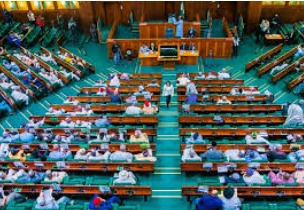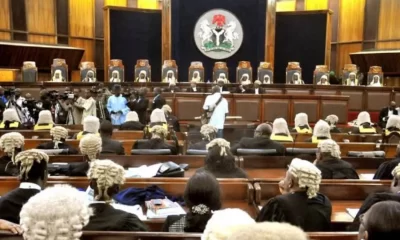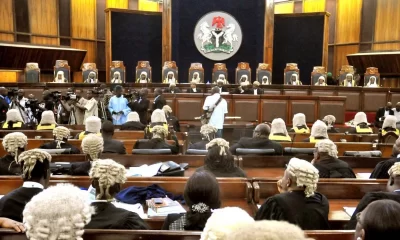The Supreme Court has upheld the sack of the General Overseer of the Assemblies of God Church, Reverend Paul Emeka, for violating the church’s rules.
The court, in a unanimous judgment yesterday dismissed the appeal filed by Emeka against an earlier decision of the Court of Appeal, Enugu, which equally upheld his sack.
The decision by the Supreme Court has effectively laid to rest the about three-year leadership crisis in the church, ignited by the suspension of Emeka by the church’s General Council on March 6, 2014.
The council held that Emeka violated several sections of the church’s constitution and bye laws, particularly, Article 12, which deals with taking or using any other person to initiate
proceedings against the church in court for any reason.
It noted that Emeka failed to exhaust the church’s internal mechanism for dispute resolution, as stipulated in its rules.
The church’s council’s letter conveying Emeka’s suspension was signed by Rev. Dr. John Ikoni (General Secretary); Rev. Dr. Chidi Okoroafor (Acting General Superintendent and Rev. Dr. Vincent Alaje (General Treasurer).
The church also accused the former General Superintendent of being autocratic; involving in financial mismanagement, engaging in abuse of power and “above all took the church to court, an act tantamount to tarnishing the image of the church and bringing it to public ridicule.”
Emeka’s challenge of the church’s council’s decision ended with the Supreme Court’s judgment yesterday.
Justice Kudirat Kekere-Ekun, in the lead judgment, upheld the earlier decision of the Court of Appeal, Enugu division, to the effect that Emeka’s suspension and dismissal were in order.
On Emeka’s claim that he was not accorded fair hearing by the church’s council, as guaranteed under the Constitution, Justice Kekere-Ekun held that there was remedy under Chapter 4 of the Constitution if indeed his right to fair hearing was violated.
The judge said the provisions of Section 36 (1) of the 1999 Constitution, on which the appellant hinged his appeal, was limited to proceeding in law courts, but not proceedings emanating from domestic meetings and standing adhoc tribunals.
Justice Kekere-Ekun held that the right to be a member of a church was not a right recognized under Chapter 4 of the Constitution.

 Latest5 days ago
Latest5 days ago
 Trends6 days ago
Trends6 days ago
 Football1 week ago
Football1 week ago
 Football1 week ago
Football1 week ago
 Health1 week ago
Health1 week ago
 Business1 week ago
Business1 week ago
 Football1 week ago
Football1 week ago
 Latest1 week ago
Latest1 week ago












